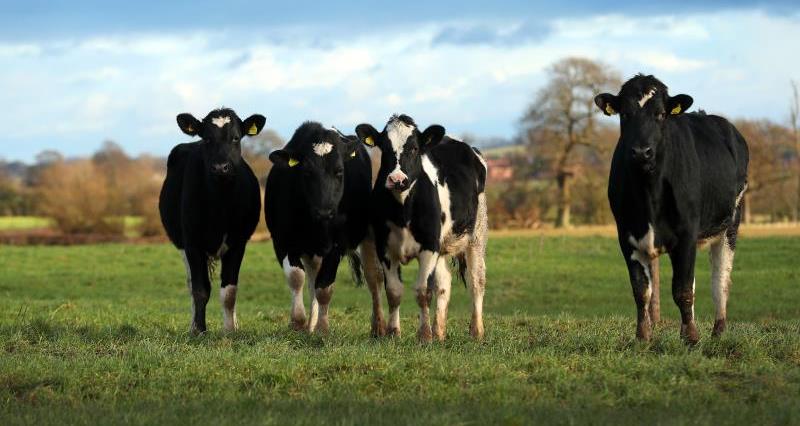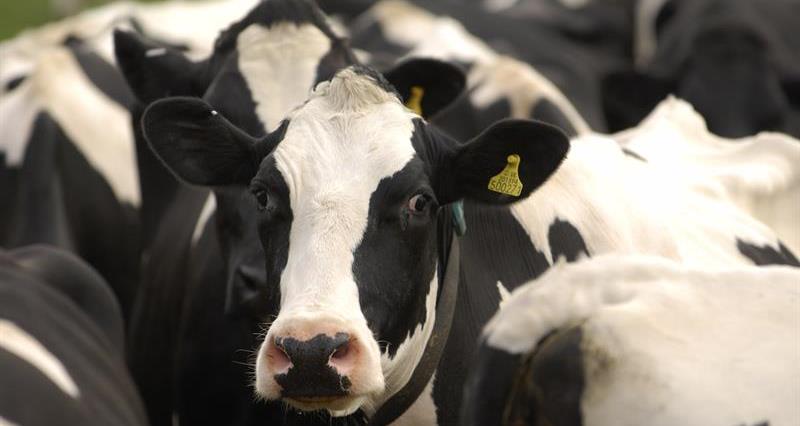Following sustained campaigning by the NFU and other farming organisations, on 3 February┬Āthe UK government announced a new Code of Conduct for the dairy supply chain. The code┬Āseeks to provide a guiding framework, establishing minimum standards and providing businesses with the flexibility to adapt contracts to their individual circumstances.
Below, NFU Dairy experts provide more information and guidance┬Ā.
What has lead to this Defra announcement?
The NFU's dairy board and dairy and legal teams have been working hard for many years on dairy contracts, with the aim of improving relationships, transparency and fairness in the supply chain.
In 2012, the NFU was a critical driver in the development of the Dairy Contracts VCOP (Voluntary Code of Practice). While this was a step in the right direction, it was not enough to create significant and lasting change.
Since then, the dairy sector has faced many challenges, and while there have been some improvements towards fairer contracts and better relationships, it has become clear that regulation is the only way forward, so we are delighted to see government take this important decision.
In summer 2020, a long-awaited Defra consultation on regulation of contracts was announced and┬Āthe NFU provided a robust response on behalf of our members, following a series of regional and national engagement meetings to develop our response.
We are proud that many of our members contributed valuable, individual responses to the consultation, with 88% of the 839 responses to the consultation coming from producer respondents. Response rates in each devolved nation also provided good geographical representation for all parts of the UK.
The government has published the┬Ā.
We have provided a short analysis of some of the key areas below. For the full details, please see the link, above.
Views on legislation
The question around the need for contract regulation prompted a significant demand for legislation; 72% of respondents either ŌĆśagreeŌĆÖ or ŌĆśstrongly agreeŌĆÖ that contract reform legislation is needed.
A significant majority of respondents from Great Britain support the introduction of UK-wide legislation, highlighting the need for a level playing field. However, some specifically referenced different circumstances in Northern Ireland, noting the milk market there is export-focused, co-operative led and heavily dependent on cross-border trade with the Republic of Ireland.
This is something the NFU is working with our colleagues in the Ulster Farmers Union to ensure the correct approach is taken.
There was a mixed picture on those who have experienced problems with contracts, but a number of processors shared the view that, as not all processors currently follow the Voluntary Code of Practice, it has created an imbalance across the sector.
Price
Most respondents favour the inclusion of a price mechanism within a contract. Many respondents suggest this would improve the overall transparency of the contract and facilitate long-term planning.
A number of respondents (including the NFU) recognise the need for flexibility in developing pricing mechanisms.
There was also a fair amount of support to change the system of ŌĆśbuyersŌĆÖ discretionŌĆÖ to set price.
There was strong support for pricing mechanisms to be detailed in contracts, but processors raised concerns that this could lead to more price volatility.
The government has indicated that price will be one of the main areas for further discussion to find a suitable way forward, working with the industry.
Volumes
Most respondents did not favour fixing of volumes in contracts, although some saw merit in using specified volumes to prevent overproduction and flooding of the market.
The external factors in milk production and volatility of the markets were flagged as key issues, but overall there was no consensus on the volume questions.
Duration
The responses show a preference for a minimum contract duration of 12-months. However, substantial numbers of respondents preferred both longer and shorter durations, which shows the need for flexibility. There was also support to maintain rolling or ŌĆśevergreenŌĆÖ contracts.
Opinions were divided on the issues of review periods for contracts and periods for fixing of price in contracts.
Termination
A large majority believe termination clauses should be mandatory in a contract and there is support for this across both producers and processors; 85% of producers either strongly agree or agree, as do 96% of processors.
Three months was deemed to be the most favoured option for notice periods for farmers to terminate a contract, but there was some support for 12 months, especially from members of co-operatives. There was also support for lower notice periods for those on contracts with discretionary pricing mechanisms.
On the part of the processor giving notice to a farmer, the consensus was that 12 months is the most favoured approach for both minimum and maximum notice periods allowable, as this is a suitable time period to allow the farmer to plan and find a new buyer.
Variation
The overwhelming majority support that any contract changes should be agreed between both parties, thus wishing to remove the ability for either party to make unilateral changes.
In terms of the notice required for any changes, many support three months as a minimum, but it is noted flexibility may be required, depending on what the change is.
Charges and premiums
There is a strong consensus that contractual terms and conditions should be set out in clear and unambiguous language. This result is consistent across both producers and processors and there is recognition that this will hopefully leads to fewer disputes.
Exclusivity
Opinion is divided on whether exclusivity should be prohibited or not. There is support for exclusive contracts, particularly from co-operative members, but also some considerable support for non-exclusive contracts from farmers who believe it could help them manage risk and engage multiple buyers.
Dispute resolution
The majority of respondents highlighted that legislation will only succeed if there are meaningful sanctions for non-compliance.
There was no major consensus on how this should be approached by, but there was support for an independent adjudicator or ombudsman to enforce new regulations. Many others also highlighted need for different levels of enforcement.
Producer organisations
There was strong support for work to encourage the use of producer organisations. Many responses suggest that producer organisations will help to create a more equitable sector through the promotion of farmer representation and enhanced bargaining power.
This may not be part of any regulation, but could form a crucial part of the future for dairy farmers.
Implementation
The majority thought that 12 months was an appropriate transition/implementation period, but there was also support for longer periods, with processors favouring two years.
What next?
While the important work now begins to collaborate with government and industry in developing the legislation and getting it right, this is a prominent step towards a fairer future for the dairy sector.
There is still significant detail that will need to be considered and the NFU will be heavily involved, alongside other industry colleagues across the supply chain, in stakeholder engagement work in Defra in finding a path through some of the challenges, including around pricing mechanisms and a code regulator.
This work will feed into designing the SI (Statutory Instrument) that will then be laid into law, using the regulation making power in section 29 of the Agriculture Act 2020.
We will continue to engage with members throughout the process, through live events, online articles, through the Dairy Focus newsletter and via regional board meetings. We look forward to working with members and collaborating alongside industry and government through the code development.

